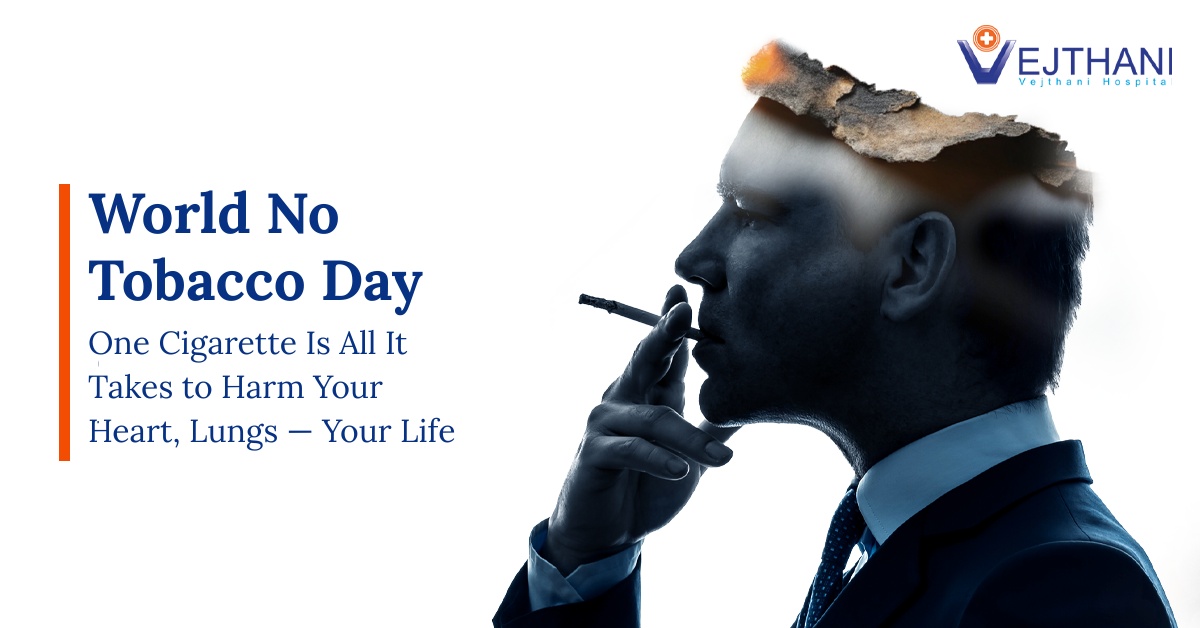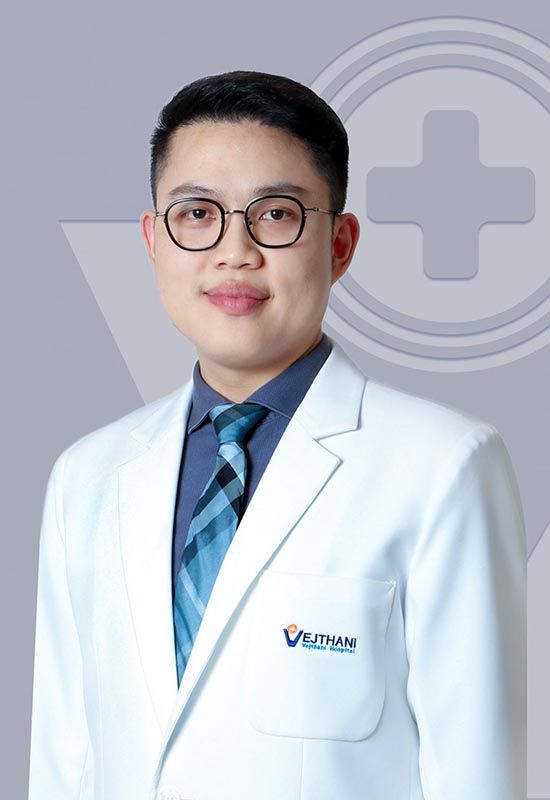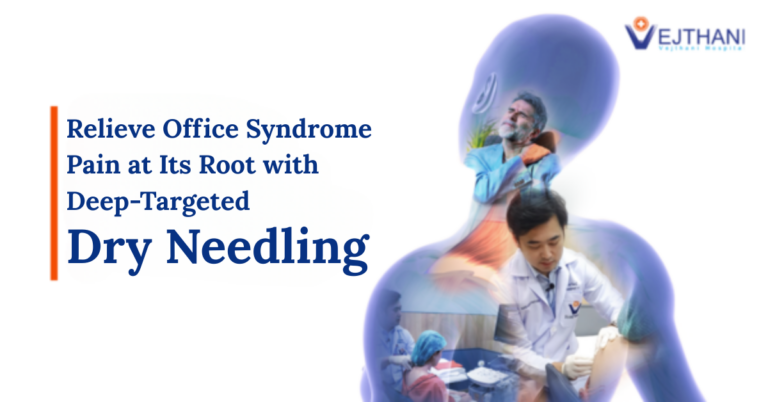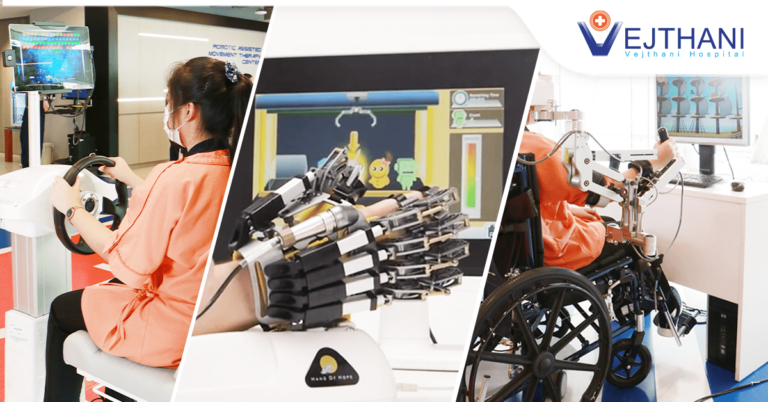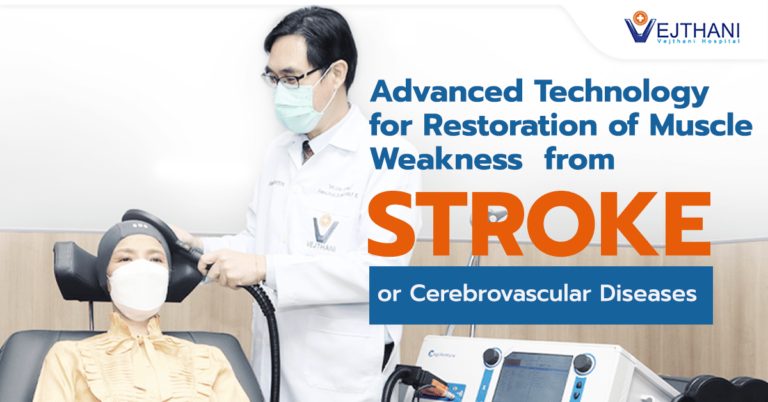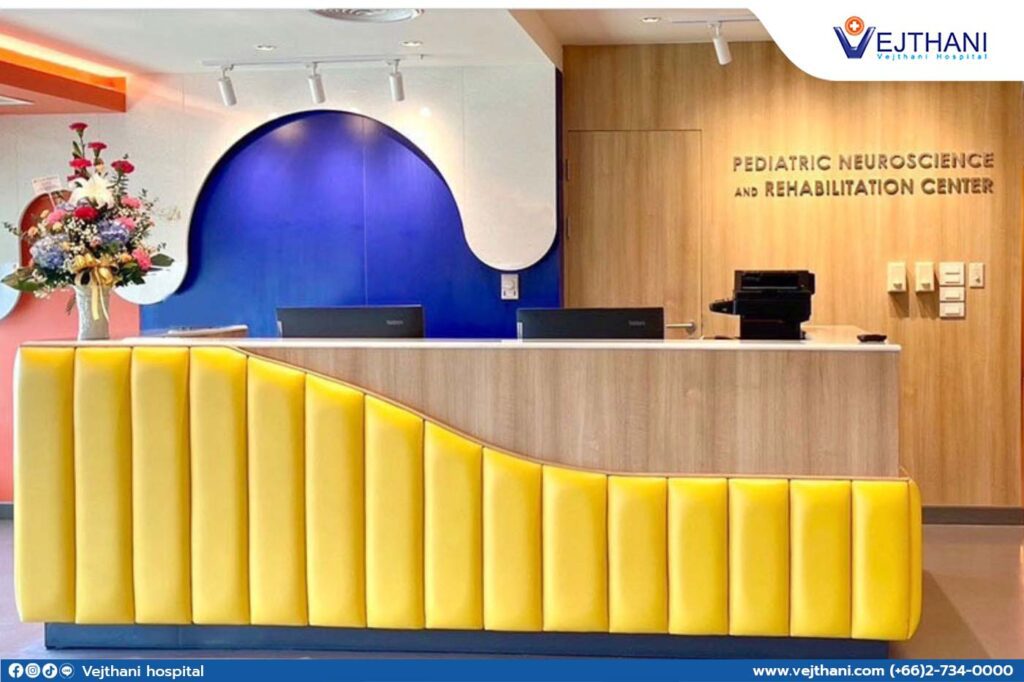

Cerebral Palsy occurs when the brain sustains damage from various causes during infancy or early childhood. This delays development, especially in movement, communication, learning, and behavior. Common symptoms include abnormal posture and walking, limb stiffness, or difficulty swallowing, significantly impacting daily life and social integration.
Cerebral palsy treatment requires various combined methods, including medication, physiotherapy, occupational therapy, and developmental stimulation. For optimal outcomes, Vejthani Hospital has implemented the use of a Snoezelen room or controlled multisensory environment (MSE), which is a therapeutic space designed to stimulate various sensory aspects of the body, including sight, hearing, touch, and smell, and to train major muscle groups used in posture, standing, and walking. This helps enhance the development of numerous skills for children with cerebral palsy.
Dr. Thatchipat Sereearuno, a rehabilitation medicine specialist at Vejthani Hospital, explains that utilizing the Snoezelen room for developmental stimulation can help in the restoration of children with cerebral palsy, autism, down syndrome, as well as children with learning disabilities or behavioral problems affecting their learning skills and future life.
Snoezelen room is a simulated environment to stimulate various sensory aspects through multisensory stimulation principles, including light, color, sound, aroma, and touch, making developmental stimulation in multiple areas more effective. This leads to improved treatment results and reduced treatment duration. The Snoezelen room can stimulate development in numerous aspects, including:
- Movement: Children with cerebral palsy tend to have unusual movement patterns due to muscle weakness, stiffness, and lack of movement coordination. The Snoezelen atmosphere can help address these issues by using movement stimulation equipment such as tactile boards, waterbeds for balance control, and light-guided movement activities.
- Communication: Children with cerebral palsy often have communication difficulties, such as slow or unclear speech. The Snoezelen room can aid in developing communication skills by engaging in activities like singing along with music or interactive vocalization games using microphones to produce light effects.
- Learning and Behavioral Problems: Many children with cerebral palsy have slow learning and behavioral problems, such as aggression or self-harm. The Snoezelen room helps fix the behavior of children with cerebral palsy and autism through therapeutic activities such as listening to music, simulating environments for relaxation, or using an interactive playground to improve attention and concentration.
Additionally, Pediatric Rehabilitation Center at Vejthani Hospital features Adventure and Interactive rooms, which complement the developmental training of children with cerebral palsy and developmental delays.
The “Adventure room” is a large room equipped with numerous colorful shapes and objects designed for children’s adventurous activities. It focuses on muscle strengthening, balance control, and sensory stimulation through climbing, crossing obstacles, or playing in ball pools. Each piece of equipment is meticulously designed to prioritize the safety of children.
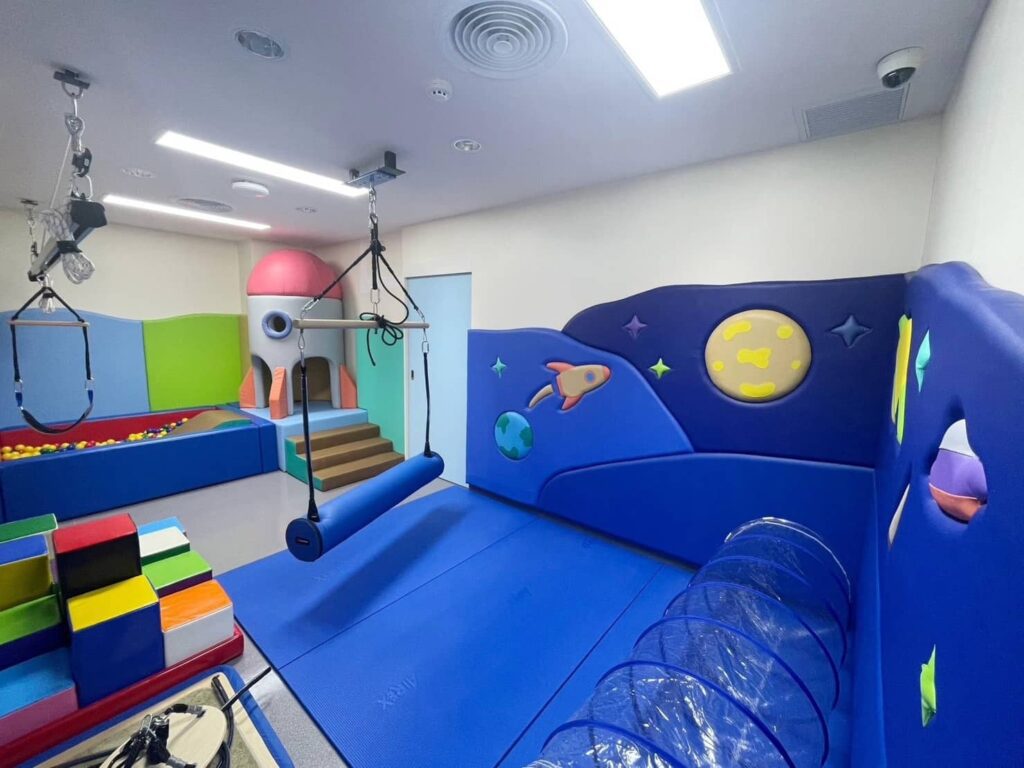

Transforming rehabilitation into an engaging adventure, the “Interactive Room” immerses children in a world of playful learning. Featuring vibrant interactive projectors and an exciting playground to target key areas like muscle groups, balance, coordination, focus, and cognitive skills.
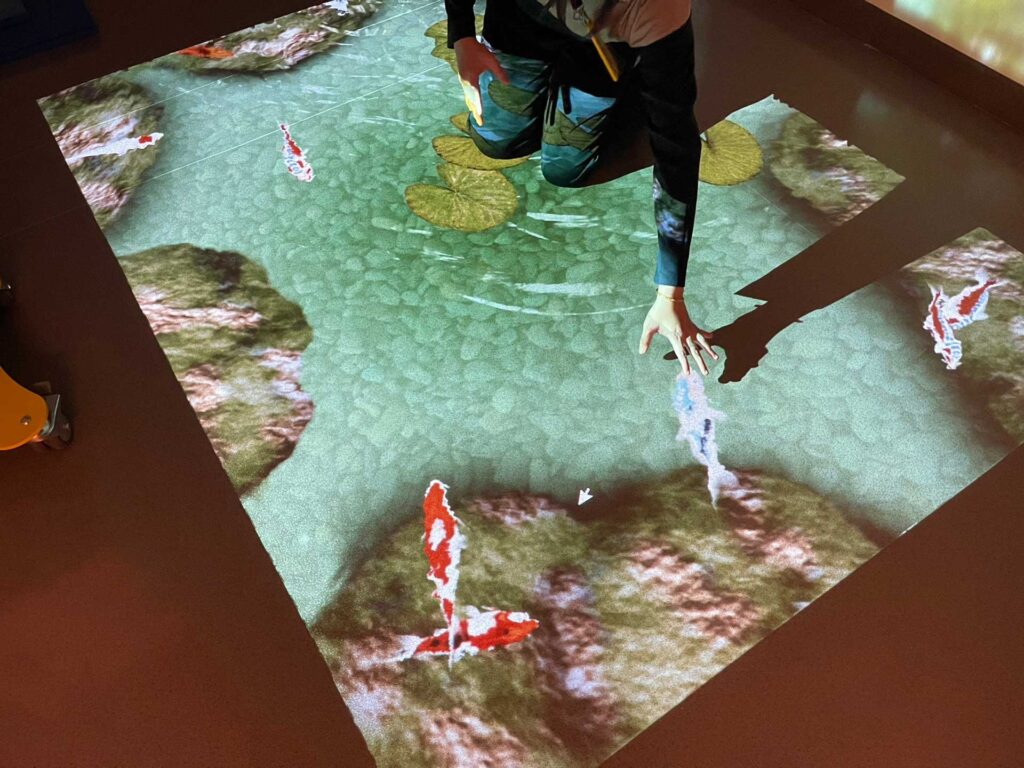

Engaging games and technologies ignite children’s enthusiasm while physiotherapists act as supportive guides, ensuring close supervision for a fun and focused environment. This approach encourages children to actively participate, replacing coercion with enjoyment. These crucial elements lead the way toward achieving the collaborative goals set by the medical team and the parents.
Vejthani Hospital is well-equipped to treat children with cerebral palsy, developmental delays, autism, and down syndrome. Therapy focuses on personalized care, with physiotherapists and occupational therapists providing close guidance to help develop emotional and motor skills. Closed-circuit cameras allow parents to closely monitor rehabilitation sessions, which typically last 1-2 hours per session, with a treatment duration of approximately 2-3 months, depending on the severity of the condition. Additionally, robotic-assisted gait and balance training are offered for gait and body balance rehabilitation, devices such as the C-Mill, a simulation of real-life walking, Lokomat robot for patients with walking difficulties, and Armeo spring for upper limb movement training.
Parents should monitor their child’s development closely and seek medical evaluation promptly if they observe any delays or abnormal movements, ensuring timely and quality healthcare for a better quality of life.
For more information, contact
Advanced Rehabilitation Center, Vejthani Hospital
Call 02-7340000 or Ext. 2332
English Hotline: (+66)8-522 38888
- Readers Rating
- Rated 4.9 stars
4.9 / 5 ( Reviewers) - Spectacular
- Your Rating




















